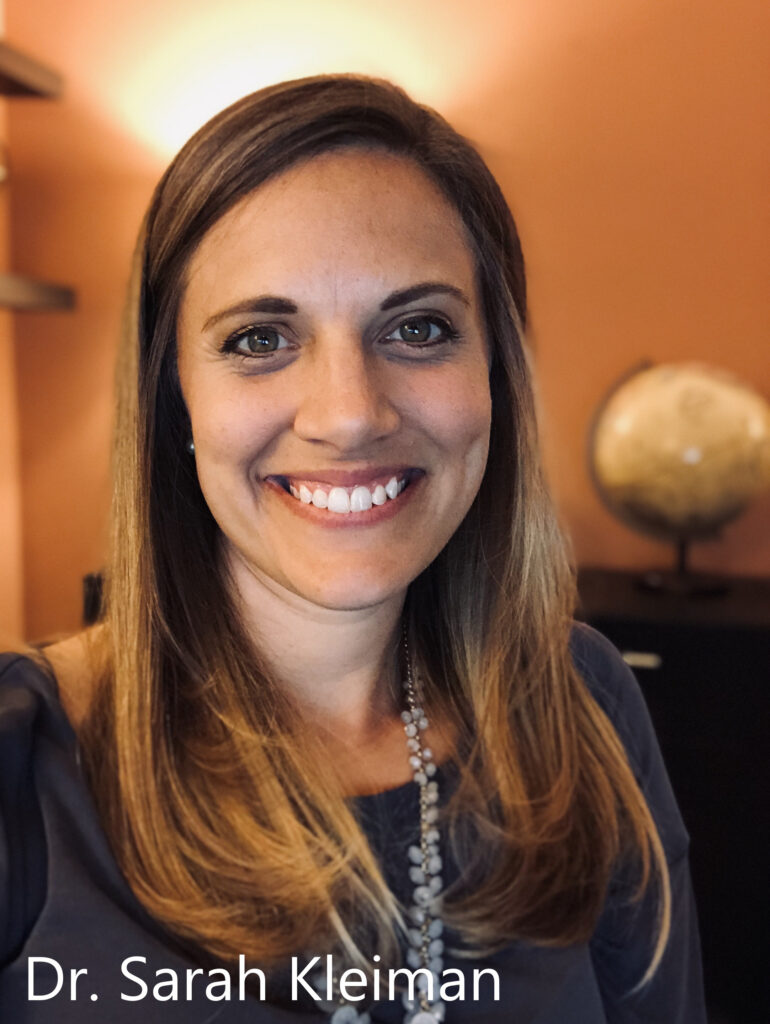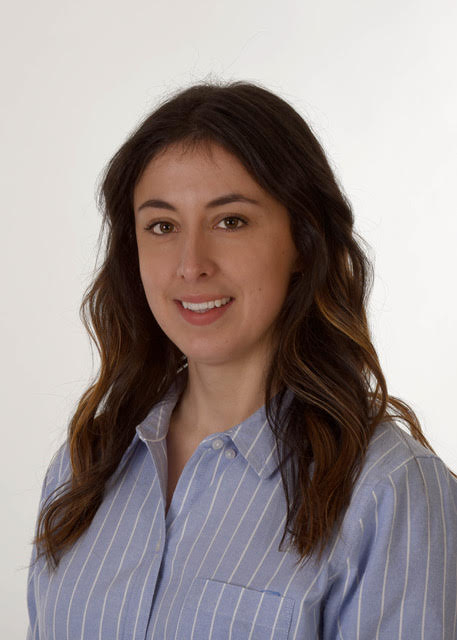by Kathryn Coniglio, M.S., Rutgers, The State University of New Jersey
Doctoral students likely give considerable thought to future career goals. Some pursue tenure-track faculty positions while others opt for clinical practice. Unlike many other pre-professional graduate programs that expose their students to a wide range of potential career trajectories, however, clinical psychology PhD programs appear to be less transparent about alternative paths for professional development.
To this end, I interviewed Dr. Sarah Kleiman, a research consultant for university, governmental, nonprofit, and industry-funded treatment trials for post-traumatic stress disorder (PTSD). I spoke with her about how she used her degree to cultivate a career that aligns with her values and strengths, and what advice she has for folks looking to pursue a similar path.
Educational and professional background

Dr. Kleiman received her PhD in clinical psychology from George Mason University in 2014. She accepted a postdoctoral fellowship and eventually a research psychologist position at the Boston VA, where she worked as a study coordinator, therapist, and assessor on several PTSD studies. There, she developed both content area expertise in PTSD and extensive experience with clinical trials. Occasionally, sponsors of studies outside the VA solicited study methodology consultation and help training diagnostic assessors. Through a concerted effort to network and publicize that she was interested in roles like these, and her mentors forwarding opportunities her way, her portfolio expanded. She eventually gained enough contracts to be a full-time self-employed research consultant, which she has been doing for the past year and a half.
Role of a research consultant
While research consultant roles in general vary depending on the needs of the project, Dr. Kleiman specializes in data integrity. As such, she helps train and supervise study staff on reliable administration of the Clinician-Administered PTSD Scale (CAPS-5) and assists with enrollment considerations, inclusion/exclusion criteria, and participant safety concerns.
I asked Dr. Kleiman how a consultant is brought into a project. Having worked as a research assistant at an academic medical center for several years prior to starting graduate school, I was aware that many studies are largely underfunded, with principal investigators (PIs) looking to cut costs wherever possible. Dr. Kleiman explained that many PIs initially may feel that they don’t have the budget for assessment consultants, but often come to realize that data integrity is such a critical component to study execution and that PIs simply don’t have time to oversee as closely as is required. This peace of mind is invaluable.
Through word of mouth, Dr. Kleiman now has a consistent clientele base and even finds herself hiring subcontractors. Currently, a primary client is the Multidisciplinary Association for Psychedelic Studies (MAPS), testing MDMA-assisted therapy for PTSD. Virtually all of her work is done remotely via HIPAA-compliant web conferencing services. This allows her to maintain other professional endeavors that she enjoys, like teaching, which she does one semester per year for the Harvard Extension School.
Advice to students
Dr. Kleiman emphasized that graduates shouldn’t feel obligated to devote themselves entirely to one endeavor; research, teaching, and clinical work can be pursued à la carte. She encouraged students to reflect on what motivates them. For her, it was a desire for self-employment, a flexible schedule, varied professional activities, and the opportunity to ensure study data is high quality by providing assessment supervision and oversight in line with best practices.
I asked Dr. Kleiman how she pivoted from academia to an entrepreneurial role. Academia offers the chance to hone many skills that are ultimately transferrable to consulting, she said. She noted, however, that she needed to make a concerted effort to advocate for the value of her services and negotiate assertively.
Clearly, this focus paid off. Dr. Kleiman has been highly successful in transforming her expertise into a marketable and in-demand skill set and hopes graduates think creatively about how they can do the same.
________________________________________________________________
Disclaimer: The views and opinions expressed in this newsletter are those of the authors alone and do not necessarily reflect the official policy or position of the Psychological Clinical Science Accreditation System (PCSAS).


